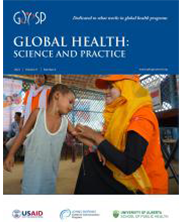The transition from paper to digital systems requires quality assurance of the underlying content and application of data standards for interoperability. The World Health Organization (WHO) developed digital adaptation kits (DAKs) as an operational and software-neutral mechanism to translate WHO guidelines into a standardized format that can be more easily incorporated into digital systems. DAKs are part of the suite of tools within the WHO SMART (Standards-based, Machine-readable, Adaptive, Requirements-based, and Testable) guidelines approach to systematically reinforce clinical, public health, and data recommendations within digital systems. DAKs serve as a critical step in fulfilling WHO’s long-term vision of SMART guidelines for transforming guideline development, delivery, and application in the digital age. A key measure of success will be ensuring countries can adapt the generic DAKs according to their digital ecosystem and aligned to their national health policies. Collaborations across health program leads, digital health and health information systems focal points, implementers, software developers, and service providers will be critical for the effective use of DAKs within country contexts.
Authors: Tigest Tamrat, Natschja Ratanaprayul, Maria Barreix, Özge Tunçalp, David Lowrance, Jenny Thompson, Leona Rosenblum, Nancy Kidula, Ram Chahar, Mary E. Gaffield, Mario Festin, James Kiarie, Brian Taliesin, Carl Leitner, Sylvia Wong, Teodora Wi, Hillary Kipruto, Ayotunde Adegboyega, Derrick Muneene, Lale Say, Garrett Mehlb


